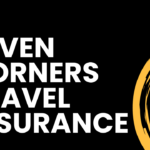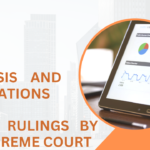Operating a fleet of commercial vehicles is a massive liability for any company. Just one serious accident can generate crippling expenses from property damage, cargo loss, and injuries. That’s why understanding commercial auto insurance and customizing a robust policy is essential for businesses using trucks, vans, or cars. This guide will walk through key coverage options, cost factors, and tips for getting the best rate with ample protection.
Thank you for reading this post, don't forget to subscribe!What is Commercial Auto Insurance?
Commercial auto insurance covers vehicles used for business purposes, like:
- Semi trucks
- Delivery vans
- Sales/service fleets
- Rideshare vehicles
- Construction vehicles
It protects the company against financial risks associated with operating these vehicles. Standard policies include:
- Liability coverage – for injury or property damage your drivers cause others
- Collision – to repair/replace your own vehicles after accidents
- Comprehensive – for damage from theft, vandalism or natural causes
- Medical payments – for injuries to passengers
Additional options like rental reimbursement, towing, and more round out comprehensive protection.
Who Needs Commercial Auto Insurance?
Nearly all companies operating vehicles for business purposes require commercial auto policies. This includes not only official company vehicles, but also:
- Employee vehicles used for work, like sales calls or client visits
- Personally owned vehicles used on the job
- Rented, borrowed, and temporary vehicles
Having employees use their own cars for work may seem cost-effective. But failing to insure those vehicles for commercial risks is an enormous liability. Don’t skip commercial auto insurance just because you don’t directly own the cars.
Common Types of Commercial Auto Policies
Commercial auto needs vary greatly by industry. Diverse policy types exist to customize protection:
Trucking/motor carrier policies – For cross-country shipping and logistics companies operating semi trucks. Includes cargo insurance.
Fleet policies – Covers multiple vehicles under one policy. Available for companies with vans, limos, taxis, and other passenger fleets.
Wrapped coverage – For contractors who attach equipment like cranes or cement mixers to vehicles. Combines auto with general liability insurance.
Rideshare coverage – Policies adapted specifically for Uber, Lyft, and delivery drivers using personal vehicles commercially.
An experienced independent broker identifies optimal coverage by analyzing your unique vehicles, drivers, routes, cargo, and risks.
What Key Factors Determine Commercial Auto Rates?
Commercial auto insurance costs significantly more than personal car insurance. Premiums are calculated based on:
- Type of vehicles – Heavier vehicles like semi trucks or construction equipment have higher insurance rates.
- Industry risk – High-risk sectors like emergency services, contractors, and transport see higher premiums.
- Driver qualifications – Extensive screening and commercial licenses may lower costs.
- Routes – Local delivery vs long haul or cross-border transport pose varied risks.
- Cargo – Insuring high-value or hazardous materials raises premiums.
- Claims history – Past accidents greatly influence rates and eligibility.
- Coverage limits – Higher liability caps and lower deductibles mean higher premiums.
Brokers use these factors to source the most competitive commercial auto insurance rate for your business’s profile.
Core Commercial Auto Policy Coverage Types
Tailoring the right insurance coverage starts with understanding the key components available:
Liability Insurance
This crucial coverage protects your business when your drivers cause harm to others on the road. It provides funds for legal defense and paying claims to injured parties to resolve your liability. Important facets include:
Bodily injury – Covers injuries your drivers inflict on other motorists, passengers, pedestrians, bicyclists.
Property damage – Covers damage your drivers cause to other vehicles or property like buildings, fences, etc.
Uninsured/underinsured motorist – Provides protection when an at-fault uninsured or underinsured driver injures your drivers or damages your vehicles.
Liability limits of $1-5 million are common depending on your vehicles and routes. Excess liability can be added for extra protection.
Collision and Comprehensive Coverage
These cover vehicle damage from all causes except collision/comprehensive caused by drivers.
Collision – Repairs/replacement after traffic accidents, regardless of fault.
Comprehensive – Covers all non-collision damage from theft, vandalism, weather, fire, wildlife, etc.
Medical Payments
Provides immediate accident injury coverage for passengers and drivers, before liability is determined. Limits of $5,000-$10,000 are typical.
Other Options to Consider
- Rental reimbursement
- Roadside assistance
- Towing
- Trailer/cargo coverage
- Custom parts/equipment coverage
A broker helps weigh the costs and benefits of each type of insurance for your unique operation. Prioritize essential protection, then add other coverage as your budget allows.
How Can Businesses Get the Best Commercial Auto Rates?
While premiums inherently cost more than personal policies, proven tactics can secure the optimal price:
- Compare quotes from at least 4-5 top commercial insurers. Rates can vary drastically.
- Opt for higher deductibles to offset premium costs. Pay out of pocket for minor repairs.
- Take advantage of discounts like multi-policy bundling, good driver rewards, and adding safety features.
- Maintain rigorous driver screening and training processes. Document your risk management.
- Ask about premium financing to spread costs over time rather than one lump sum.
- Partner with an independent broker who can source you the best options across insurers.
Running a tight ship when it comes to safety and driver oversight signals to insurers you are a lower risk. Taking proactive steps to control premium costs creates big savings over time.
Partnering with the Right Commercial Auto Insurance Broker
Sourcing comprehensive protection at competitive rates takes expert guidance. Partnering with the right insurance broker provides key advantages:
Market Access – Established brokers have connections across top national and regional commercial auto carriers. This allows them to solicit multiple tailored quotes to find you the best options.
Risk Analysis – Brokers take time to thoroughly assess your company’s vehicles, routes, cargo, safety protocols and claims history. This informs accurate quoting.
Policy Design – Rather than defaulting to pre-set packages, a broker can help customize coverage that fits your unique operational risks.
Claims Advocacy – Top brokers act as liaisons and communicate with insurers if any issues arise during the policy period or when filing claims.
Ongoing Policy Management – They provide ongoing support to tweak your policy as your business evolves.
Don’t leave commercial auto insurance to guesswork. An independent broker provides guidance and advocacy that keeps your company and your bottom line protected.
Frequently Asked Questions
How much commercial auto insurance is needed?
At minimum, carry limits that equal your business assets. But it’s smart to carry higher limits of $1 million or more to better protect against worst-case scenarios.
Does commercial auto cover employee personal vehicles for work purposes?
Standard policies won’t extend to employee vehicles. You must request special coverage, called a drive other car endorsement, to cover their use of personal cars.
Can I insure drivers who have violations or a bad driving history?
Yes, companies that are more lenient with driving records are available. But expect to pay higher premiums for greater perceived risk.
Is commercial auto insurance more expensive than regular car insurance?
Yes, commercial policies cost considerably more because they cover higher risk vehicles and scenarios. Exact premiums depend on your specific risks.
Should I work with insurance company agents or independent brokers?
Independent brokers can provide wider market access, transparency, and customization. Agents may be incentivized to sell only their carrier’s limited options.
Protect Your Fleet and Your Firm
Operating commercial vehicles presents serious risks that must be met with ample insurance protection. Yet securing the optimal coverage at competitive pricing can be challenging. An experienced independent broker has the relationships and expertise to not only find you the right commercial auto insurance, but design a policy adapted for your company’s unique needs. Don’t leave it to chance – let a trusted advisor handle your fleet insurance and empower your business to thrive.










